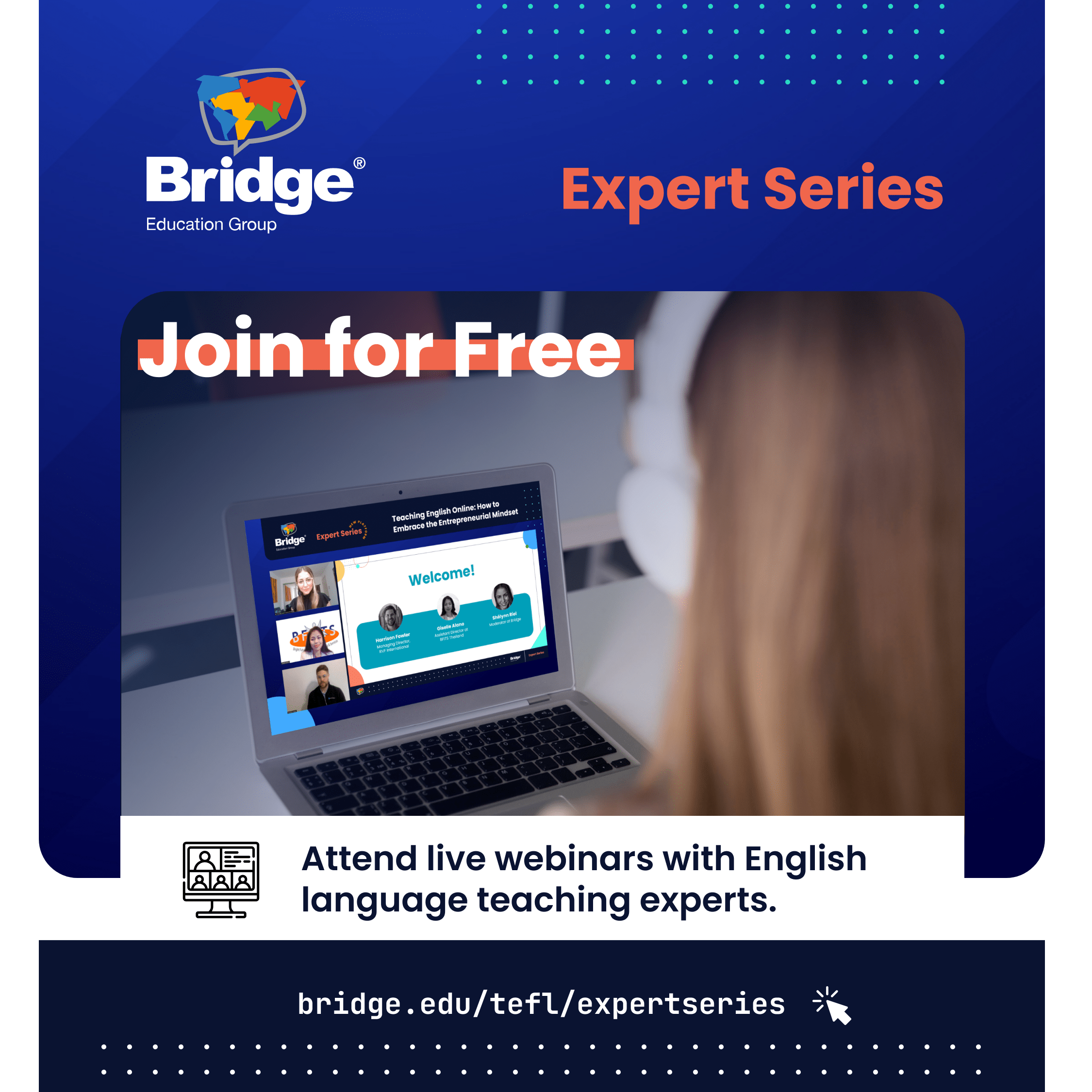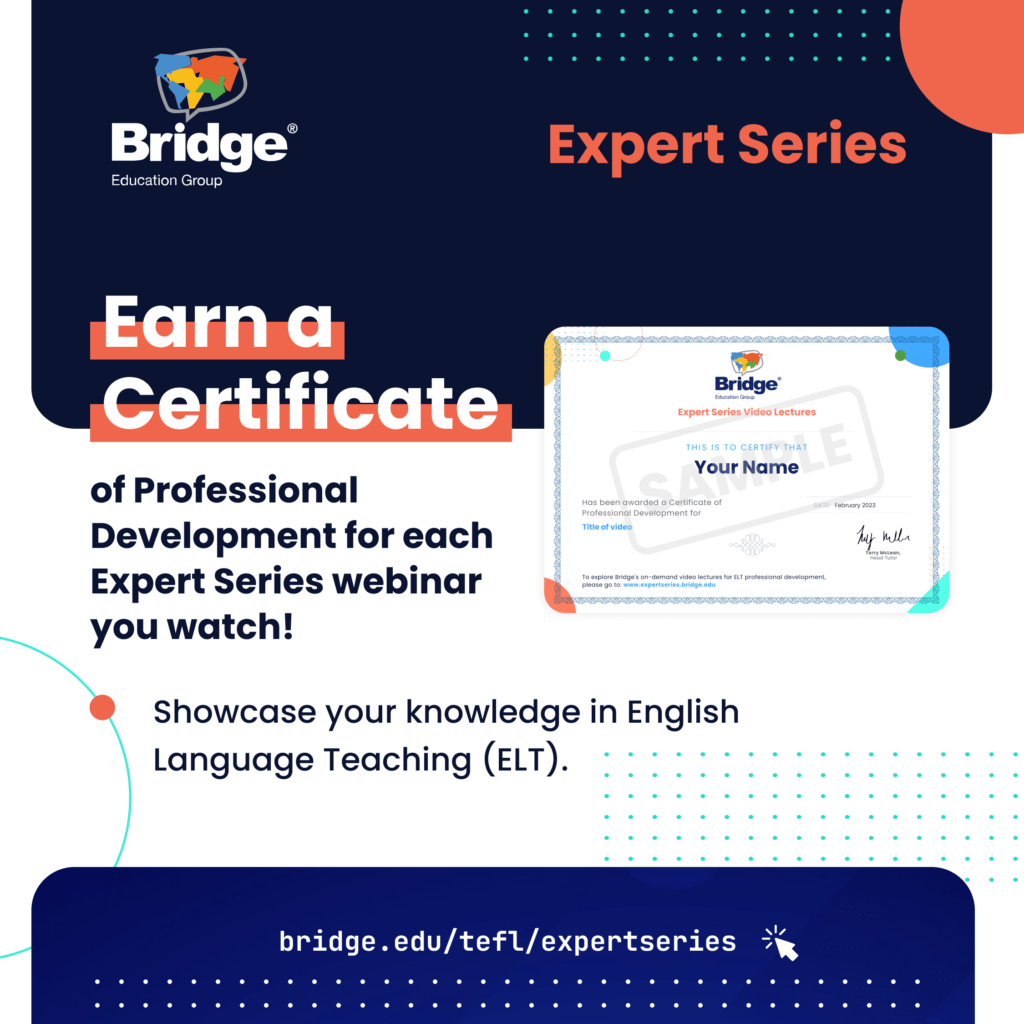Designing effective language training programs isn’t a matter of luck. Behind every class that motivates and connects with learners, there’s strategic and collaborative work. Nelly Segura, Academic Operations Specialist at Bridge, knows this well – her role sits at the heart of academic operations, where every decision directly impacts the learner experience.
Nelly began her teaching career in 2013 in the United States, working in various elementary schools across Arkansas. That experience allowed her to gain first-hand insight into the U.S. education system and build a strong pedagogical foundation in diverse settings. She also holds a master’s degree in Education, specializing in curriculum design and competency-based assessment – training that reinforces her strategic approach to program development.
Thanks to this background, Nelly brings a pedagogical perspective that blends academic depth with real-world applicability. That combination is key to designing programs that not only teach but also resonate with the needs of today’s workforce.
A Role that Connects Teams
This work doesn’t happen in isolation. From her position, Nelly bridges departments like Teacher Experience, Customer Success, Product, and Sales to ensure that each course is aligned with academic goals, client expectations, and – most importantly – the actual needs of the learners.
“Academic Operations work is not isolated – it’s deeply cross-functional.”
Relevant Content, from Day One
One of the key success factors for any program, according to Nelly, is that the content must be relevant and useful from the very first class. It’s not enough to just teach English – you need to teach the kind of English that professionals will use in hybrid meetings, when giving feedback, or leading a multicultural team.
“Motivation doesn’t just appear – it’s cultivated. And to do that, the content must feel useful and reflect real workplace situations.”
Tracking Progress, Sustaining Engagement
Motivation is also strengthened when progress is tangible. Bridge uses tools like the Global Scale of English (GSE), which help set clear, measurable goals for every class. This leads to a more personalized and meaningful experience, where every achievement – no matter how small – matters.
“This granular approach generates a sense of accomplishment that motivates and empowers.”
Listening to Improve
Continuous improvement is also part of the design. A core part of Nelly’s work involves actively listening to what’s happening in the classroom: which dynamics are working, what content needs tweaking, and what tools can enhance the experience.
“Through our meetings with the Teacher Experience and Quality Assurance teams, we quickly identify which content needs adjustment, which dynamics drive participation, and which resources need reinforcement.”
Flexibility as a Core Principle
Over the years, working with companies from various industries has shown Nelly that programs must be adaptable. Needs evolve, and flexibility is key to adjusting programs in time.
“One major lesson has been understanding that what worked six months ago might no longer be enough today.”
Beyond Language: Professional Growth
And if she had one piece of advice for HR teams, Nelly is clear: participation is not achieved through good content alone, but through a strategic vision of language as a tool for professional growth.
“English isn’t just for ‘ordering coffee abroad.’ It’s for presenting ideas, leading global teams, negotiating with vendors, or resolving conflicts.”
What Makes the Difference
Nelly is part of a team that doesn’t just create programs – they create experiences. From pedagogical decisions to content selection, every step is designed to ensure that learners feel like active participants in their own learning journey.
“What motivates me most is knowing that what I do has real impact. We’re not just teaching a language – we’re helping people grow professionally, communicate better, and unlock new career opportunities.”
What Drives Engagement
Nelly’s work shows that engagement in language programs is no accident – it’s the result of thoughtful design, ongoing collaboration, and a learner-centered approach. Every detail, from content selection to continuous feedback, contributes to building an experience that truly transforms.







